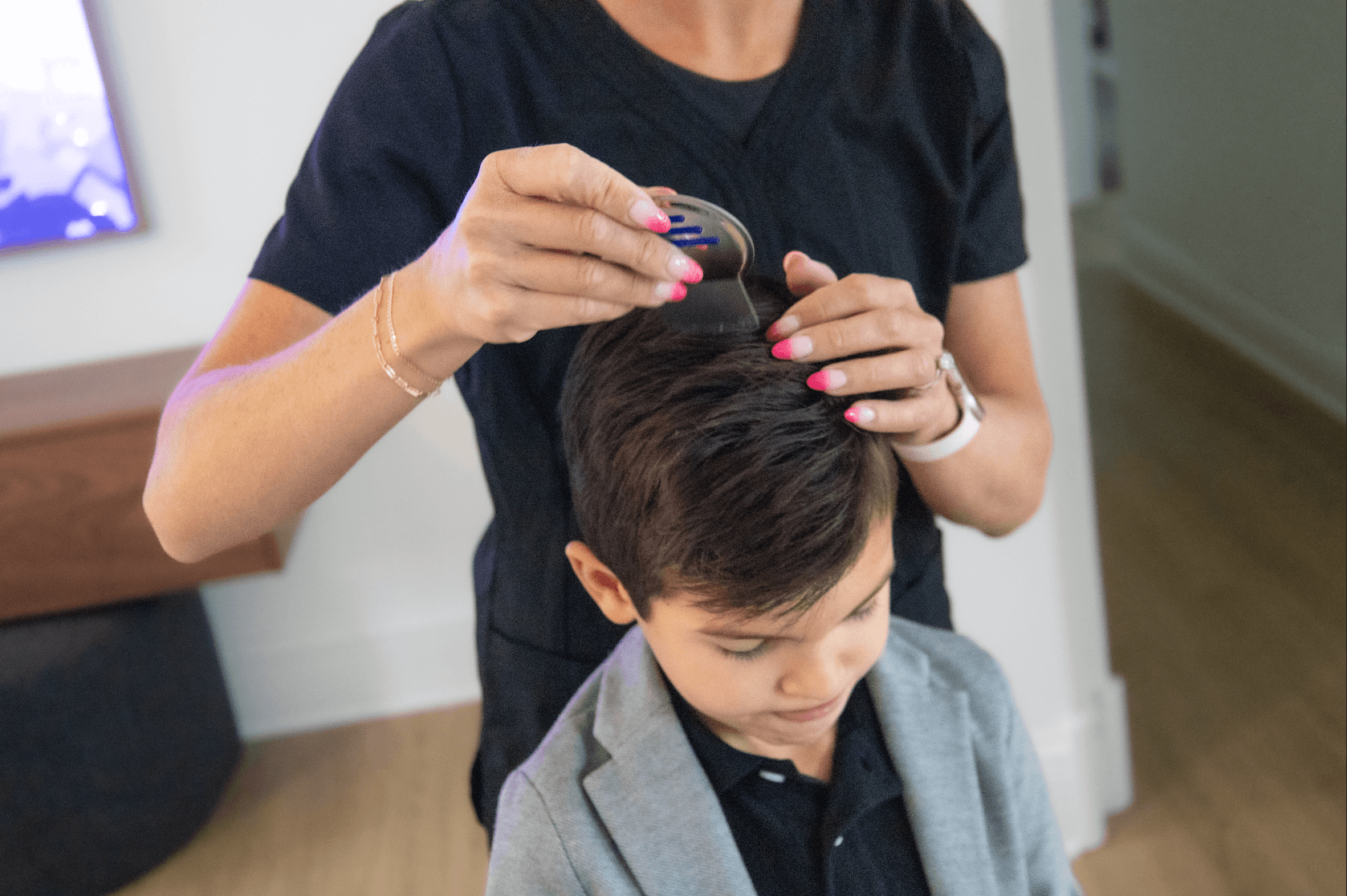

Does Tea Tree Oil Really Work as a Lice Treatment?
When it comes to treating lice, the internet is full of home remedies that promise quick fixes, and tea tree oil often tops the list. But, as we all know, you can’t believe everything you read on the internet. While tea tree oil has been touted as a natural solution for lice, the truth is less reassuring. This guide will explore the myths and facts about tea tree oil for lice, why it falls short, and what actually works to eliminate lice effectively.
The Truth About Tea Tree Oil for Lice
Tea tree oil is a popular natural remedy for many conditions, from dry skin to acne, but when it comes to lice treatment, its reputation is based more on folklore than science. Here’s what you need to know:
- No Proven Effectiveness: Despite anecdotal claims, there is no strong scientific evidence that tea tree oil can kill lice or their eggs.
- Safety Concerns: Tea tree oil can cause skin irritation, allergic reactions, or toxicity if ingested, making it a less-than-ideal option, especially for children.
- Lice Resistance: Even if it were partially effective, some lice have developed resistance to natural and chemical treatments, further reducing its reliability.
- Incomplete Treatment: Tea tree oil does not address the critical need to manually remove lice and eggs (nits) from the hair, which is the cornerstone of effective treatment. Seeking treatment at a professional lice clinic is the only foolproof way to eliminate a lice infestation.
Why Home Remedies Like Tea Tree Oil Persist
If tea tree oil doesn’t work, you might be wondering why it is still recommended when searching for lice treatment options. Here are a few reasons these myths endure:
- Anecdotal Success Stories: Some people report success with tea tree oil, but these results are often coincidental or unsupported by evidence.
- Natural Remedy Appeal: Many are drawn to natural treatments, failing to realize that lice clinics also provide natural lice treatment options without harmful chemicals.
- Misinformation Online: Social media and outdated websites perpetuate claims about tea tree oil’s efficacy without backing from scientific research.
- Confusion Between Prevention and Treatment: Some believe tea tree oil repels lice (though evidence is limited), but repelling lice isn’t the same as treating an active infestation.
The Risks of Relying on Ineffective Treatments
Using tea tree oil — or any ineffective remedy — can delay proper lice treatment and increase the risk of lice spreading. Here’s how:
- Extended Infestation: Lice multiply quickly, so delayed treatment allows the infestation to worsen.
- Risk of Transmission: Lice are highly contagious. Inadequate treatment increases the chance of passing lice to others.
- Wasted Resources: Time and money spent on ineffective methods like tea tree oil could be better invested in proven solutions at a professional lice clinic, which is more affordable than many people realize.
- Health Hazards: Misusing essential oils like tea tree oil can lead to scalp irritation, especially in individuals with sensitive skin.
The Best Way to Treat Lice
Instead of relying on tea tree oil, here’s what actually works to eliminate lice:
- Proper Diagnosis: Misdiagnosing a scalp condition as lice can lead to unnecessary treatments. Professionals can confirm if lice are present.
- Professional Treatments: Visiting a qualified lice removal professional ensures every louse and nit is manually removed through proven, chemical-free methods that are thorough and effective.
- Follow-Up Care: A professional will guide you on post-treatment practices to ensure all lice are gone and prevent reinfestation.
Lean on the Lice Removal Network to link you with a professional lice clinic in your area so you can ensure thorough, effective treatment.
Frequently Asked Questions:
Can I put tea tree oil on my scalp?
Tea tree oil can be applied to the scalp in diluted form, but it’s important to exercise caution. Undiluted tea tree oil may cause skin irritation, allergic reactions, or sensitivity, especially for children or those with sensitive skin. For lice treatment, however, tea tree oil is not proven effective, and professional lice removal is the safest and most reliable option.
What happens if you don’t dilute tea tree oil on skin?
If you apply undiluted tea tree oil directly to your skin, it can cause irritation, redness, itching, or a burning sensation. In some cases, it may trigger allergic reactions, such as a rash or swelling, especially for people with sensitive skin. To avoid these issues, always dilute tea tree oil with a carrier oil (like coconut or olive oil) before applying it to the skin.
What is tea tree oil good for?
Tea tree oil is widely used for its antimicrobial and anti-inflammatory properties. It’s commonly used to treat acne, soothe minor cuts and wounds, reduce dandruff, and manage fungal infections like athlete’s foot or nail fungus. However, it should always be diluted and used with caution to avoid skin irritation or allergic reactions.
